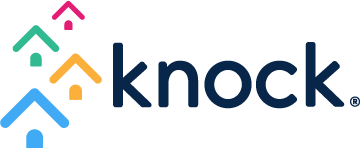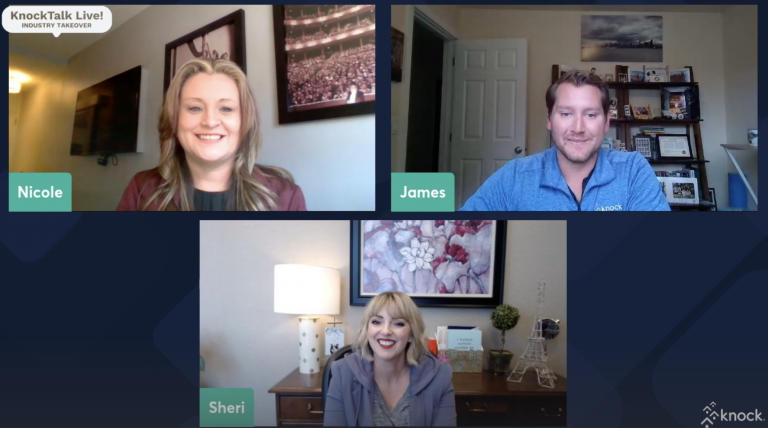6-Step Lead Management Strategy that Optimizes NOI

Is your CRM helping to grow your NOI or net operating income? It should be. Otherwise, it’s (probably) really just pretty, but likely expensive, pixels on a screen.
Investing in CRM, or any CRM lead management technology, is a tremendous strategic undertaking, and ultimately, it needs to pay dividends. Picking the best lead management software for your team can be a challenge, but it can pay off big. These six steps will guide you on your path to CRM success.
1. Identify Opportunities for NOI improvement
To help you decide on what CRM lead management software might be best for your leasing staff, start by asking the right questions. You can identify current strengths and weaknesses that a CRM can help you with by asking some basic performance-based questions:
- Do we have enough prospect pipeline to meet our goals?
- Are we investing too much or too little?
- Who are our high- and low-performing leasing agents?
- Are we meeting our sales engagement standards?
- Are we proactively engaging our residents?
- Do we have renewal predictability?
Your answers to the above will guide you in identifying core themes and your BHP (big, hairy problem). It’s OK if you don’t yet have answers to these questions, or if you’re not sure about your answers today. That is exactly why you need a CRM. A reliable multifamily CRM can help your business grow and help address the questions above.
2. Survey Your Team to Help Narrow Down CRM Options
To help find the best CRM for your team that will address its individual needs and wants, start by asking your team what they need. They’ll also be using this platform, and although you can’t please everyone, you can try to pick a tool that will help your team do their jobs well and boost your bottom line. Involve internal stakeholders early on in the CRM vetting process because this one business decision will trigger noticeable downstream impacts in multiple departments in your organization, good or bad. Generally speaking, you will ideally need input and guidance from:
- Leasing – On-site team and regional directors
- Operations
- Marketing
- Training
- IT/Innovation
- Procurement/Finance
By seeking feedback from these varying departments, you help to ensure that the CRM you select is the best one for your team.
3. Identify Benchmark Data
To help improve your future real estate NOI, it helps to examine past key data. Gathering current organizational data in your key areas of NOI opportunity. Knowing where you are today with performance will really help you compare and understand the impact of new lead management technology. At a minimum, identify the following benchmark data for your portfolio today:
- Tour/lease conversions
- Response times by agent
- Ad spend
- Loss reasons
- Conversion to tour/lease by contact type and renewal ratios
A high-quality CRM will help you address these common issues and find solutions to them, but it helps to identify what your leasing staff is struggling with first.
4. Research CRM Technology
Once you have identified your benchmark data, it’s time for research. Ask other industry professionals in person and online what CRM providers they currently use and have used in the past. The answers might surprise you and can help you decide the right product for your specific needs. Modern consumers often crowdsource solutions to make major decisions, and you will soon discover that CRM technology can be very polarizing because of how central it is to a well-run sales organization.
Some questions to ask others include:
- What do they love about their lead management processes today?
- What do they dislike?
The answers to the questions will help you narrow the field and then set up product demos based on your findings.
Crowdsourcing is step one of your CRM due diligence process. As you begin to review solutions, at some point early on you’ll want to invite your IT team to collaborate with potential CRM providers and evaluate the depth and flexibility of integrations. You’ll want to get answers to what you can expect in terms of initial setup and rollout in addition to ongoing training. Ask for customer references and case studies, and be sure these insights come from customers with no financial stake in the CRM technology you’re considering. It’s important to get the “real talk” from current CRM users to avoid the unnecessary disappointment, frustration, and costly change management that can happen if you end up with a product that doesn’t work for your team.
5. Test Out Your CRM Before You Commit
Prior to committing to a CMS, take one (or two or even three) for a “test drive.” Before making a portfolio-wide decision, we’d advise narrowing the field to two or three potential partners. A typical pilot lasts about three months, which is plenty of time to really test out the CRM and ensure it’s the right product for your team.
The ultimate goal for CRM is always to improve NOI. The path to creating that value is different for every operator. During your pilot, you’ll work closely with your CRM providers to establish what success looks like.
The pilot period is the time to test and make mistakes. There inevitably will be road bumps, and that’s to be expected. Use the pilot period to determine if you’re still solving the right problems. It’s also an excellent opportunity to experience how implementation, training, and technical support will work at scale.
6. Ensure Your CRM Offers Good Returns
What matters most when it comes to CRM: NOI and ROI or return on investment on the product. That’s what they’re designed to do, ultimately. If a CRM doesn’t deliver financial returns during the pilot, then why move forward? Some bigger questions you can ask yourself include:
- Were you able to eliminate redundant or outdated technology?
- Did you spend your marketing budget more efficiently?
- Did economic occupancy improve through better sales performance?
Investment in CRM is an investment in time, money and effort. By following these six steps, it will help will ensure that you’re not leaving money on the table!
To learn more about how Knock can grow your portfolio NOI, book a no-obligation demo:


